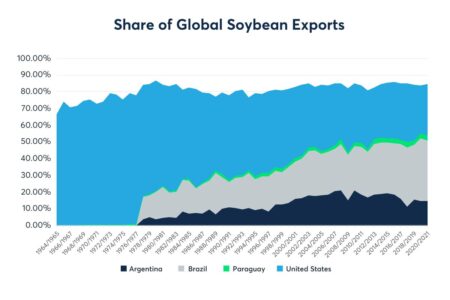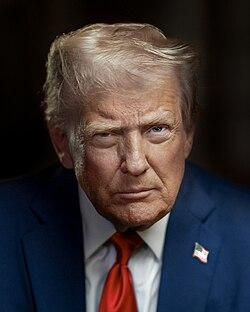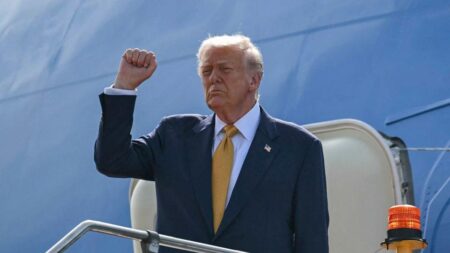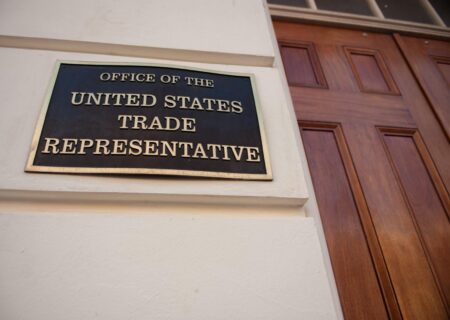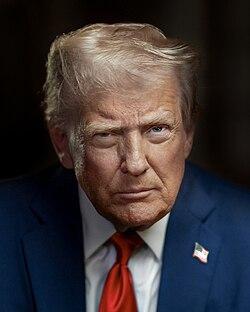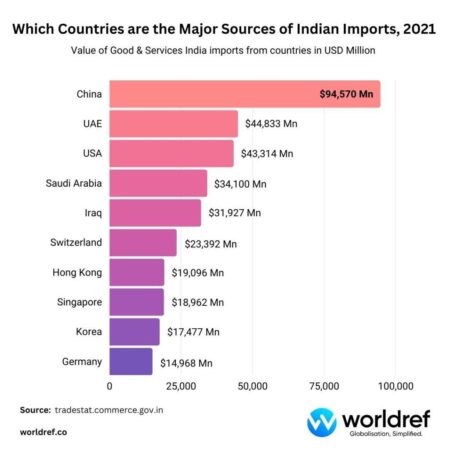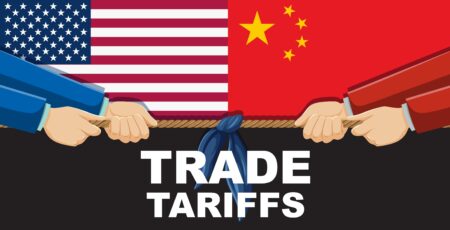The EU is reigniting its stalled China de-risking strategy, boldly aiming to reduce economic dependence amid rising geopolitical tensions. This decisive action underscores Brussels’ dedication to forging diverse trade partnerships and creating stronger, more resilient supply chains
Browsing: trade relations
China’s tightening trade policies and escalating regulatory hurdles are sending shockwaves through global supply chains, posing fresh challenges for international businesses striving to navigate this intricate trade landscape, reports the Financial Times
China and Australia are caught in a mounting showdown, with fierce clashes over rare earths and iron ore fueling the fire. Trade restrictions and fierce competition for resource access lie at the core of this conflict, disrupting global supply chains and putting immense pressure on their already fragile relationship
Japan is grappling with a significant economic squeeze as China’s travel boycott deepens amid rising diplomatic tensions. The steep decline in Chinese tourists is striking a powerful blow to Japan’s tourism and retail sectors, highlighting the wide-reaching impact of these escalating geopolitical conflicts
Canada’s new budget boldly charts a course away from dependence on a single market by expanding trade partnerships and turbocharging domestic industries. This dynamic strategy aims to forge a stronger, more resilient economy ready to thrive amid global uncertainties
Farmers are raising the alarm as China leverages its colossal soybean purchases-totaling millions of tons-as a strategic weapon to pressure the U.S. in the intensifying trade war, leaving American growers feeling sidelined and betrayed, reports Fortune
Japan has proudly resumed seafood exports to China after a two-year halt sparked by worries over Fukushima wastewater. This significant move signals easing trade tensions and rising confidence in the safety and quality of Japanese seafood
Gov. Jim Pillen has boldly broken ranks with Nebraska’s congressional delegation over former President Trump’s plan to export beef to Argentina. This unexpected divide highlights the contrasting visions for trade and agriculture policy that will shape the state’s future
Canada’s Governor Mark Carney and China’s President Xi Jinping have taken a bold step to mend strained diplomatic ties, paving the way for renewed dialogue and deeper collaboration between their nations, Al Jazeera reports
Brazil’s soybean exports to China may not reach the soaring heights expected in 2024, reveals Valor International. Shifting demand trends and evolving market forces are transforming the future landscape of trade volumes
As Trump takes on trade tensions with China, a groundbreaking new expansion in Mississippi is sparking fresh hope for local farmers facing the soybean crisis, promising to boost production and breathe new life into the struggling agricultural sector
Former President Trump is sparking intense controversy by pushing for the import of Argentine beef, a move that many say undermines hardworking American ranchers. This bold stance has ignited a fierce backlash, raising serious concerns about the future of domestic livestock support and trade policies
The U.S. Trade Representative has launched an investigation into China’s very first trade deal from the Trump administration, igniting concerns from the Alliance for American Manufacturing about its potential impact on American industries at home
Higher tariffs on Canadian lumber aim to protect the US forestry industry, but experts caution they may fall short of driving long-term investments due to market fluctuations and ongoing supply chain challenges. Achieving true sustainable growth requires more than just imposing tariffs
Former President Donald Trump praised Japan as a crucial ally and passionately threw his full support behind candidate Sanae Takaichi, vowing to deliver “anything you want” to power up her campaign, Yahoo Finance reports
Gold prices plunged over 2%, sinking to a three-week low as optimism grows around easing US-China trade tensions. With diplomatic ties warming, investors are turning away from gold’s safe-haven status. This sharp decline underscores a surge in market confidence, Reuters reports
The U.S. and Australia are forging a dynamic strategic alliance to break China’s hold on rare earth minerals, working together to secure vital supply chains that drive cutting-edge technology and bolster defense capabilities
The US is gearing up to slash tariffs on Indian imports to 15%-16%, marking a bold move to ease trade tensions and turbocharge bilateral commerce, according to a recent India Today report. This strategic decision aims to deepen economic ties and ignite stronger cooperation between the two nations
As U.S.-China tariffs transform global trade, a dynamic Tanzanian entrepreneur is boldly stepping into the spotlight. Shifting supply chains are unlocking fresh opportunities for emerging markets ready to rise and fill the gap left by soaring costs
Soybean farmers are facing a tough road as tariffs shake up U.S.-China trade relations. With China as a key buyer, producers are boldly exploring new markets and creative strategies to safeguard their livelihoods amid the uncertainty










